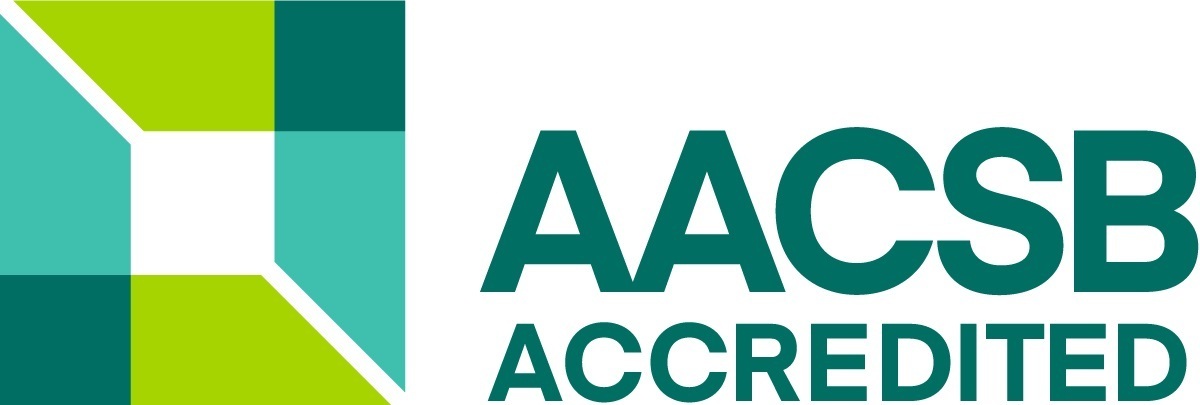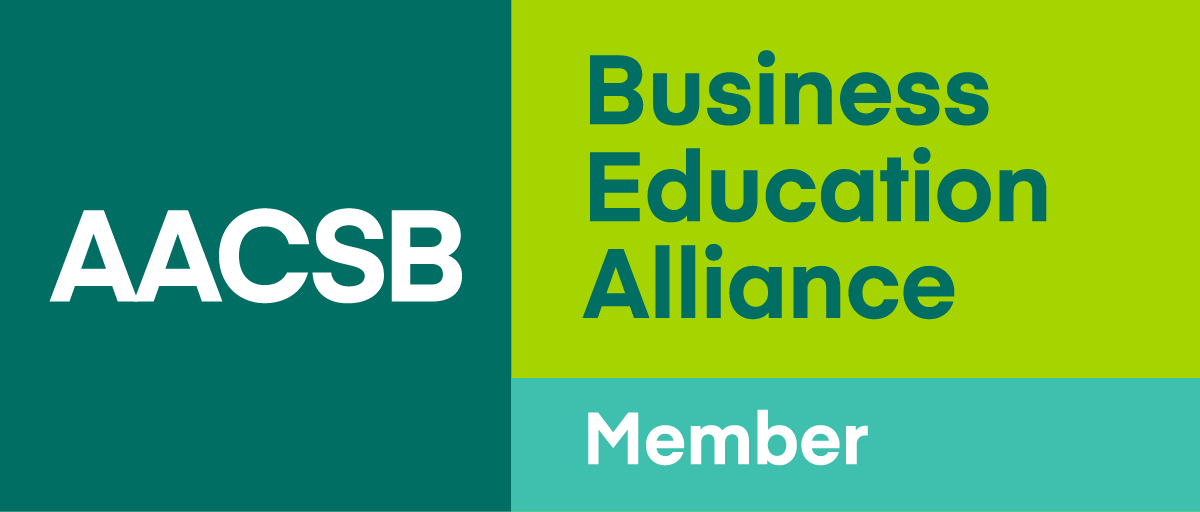[CM Exchange] NSYSU IBBA Students Share Exchange Insights: Education Through Real Challenges Abroad

“Prepare for language tests early, keep track of your expenses, and never forget to sign the pre-approval credit transfer form.”
These simple yet crucial reminders came from seniors in the International Business Bachelor of Administration (IBBA) program at NSYSU, who returned this summer to share their one-year exchange journeys.
The Four Students and Their Host Schools
- Helena Chang|NEOMA Business School, France & Chulalongkorn University, Thailand
- Benson Hsiao|emlyon Business School, France
- Janet Chou|Norwegian School of Economics (NHH), Norway
- Kathleen Huang|University of Mannheim, Germany
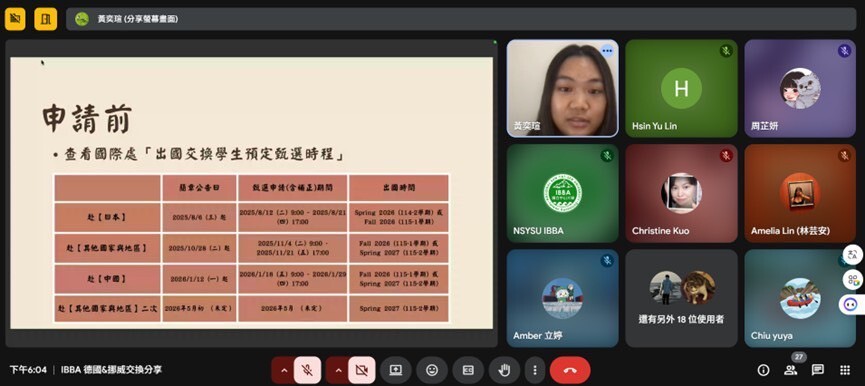
Senior students reminded classmates to check the OIA website for application timelines to avoid missing deadlines.
Real Stories: From Visa Hurdles to Housing Nightmares
The four students studied at NEOMA Business School (France), emlyon Business School (France), Norwegian School of Economics (NHH, Norway), University of Mannheim (Germany), and Chulalongkorn University (Thailand).
They shared practical lessons: applying for a French visa at least a month early, navigating additional military exit permits for male students, and overcoming the infamous “housing nightmare.” Many struggled with limited supply, high agency fees, and language barriers, but resolved them by applying for university dorms, using alumni-recommended platforms, and securing CAF housing subsidies.
On expenses, students reported monthly living costs of NT$20,000–30,000 in France and Norway, with Norway totaling nearly NT$600,000 for the year. Thailand, in contrast, required only NT$15,000 per month. Their advice: “Always keep a budget log.” Scholarships such as the NSYSU-CM Alumni Study-Abroad Scholarship significantly eased the burden.
Academically, exchange students often joined graduate-level courses, facing a system focused on individual reports and exams, unlike Taiwan’s group projects. Though demanding, this cultivated stronger independence, discipline, and problem-solving skills.
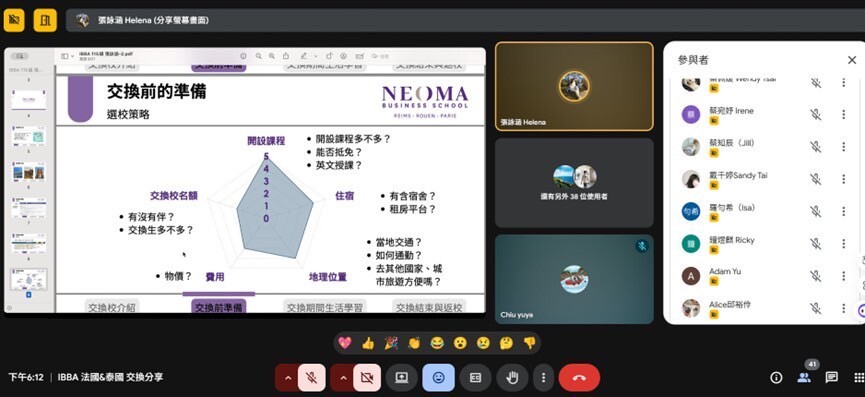
Before choosing an exchange school, senior students suggested making good use of available resources and attending info sessions.
Five Key Lessons from the Sharing
1. Language proficiency is the gateway: accounting for 40% of the selection score. Higher test results open more options. Start preparing early to gain flexibility.
2. Be strategic in school selection: look beyond rankings. Consider transferable courses, availability of English-taught classes, living costs, housing, transportation, safety, and alignment with career goals.
3. Credit transfer requires precision: sign the pre-approval form before departure; keep course syllabi and proofs during exchange; submit the application, official transcript, and syllabi upon return. Skipping pre-approval may risk graduation delays.
4. Exchange brings diverse rewards: from finance and strategy courses to language learning in French or Thai, students improved both academically and personally—developing independence, leadership, and international networks.
5. Encouragement from seniors: Apply in sophomore or junior year, go abroad in junior or senior year; prepare visas, housing, and finances early; be flexible, proactive, and above all—embrace the adventure.
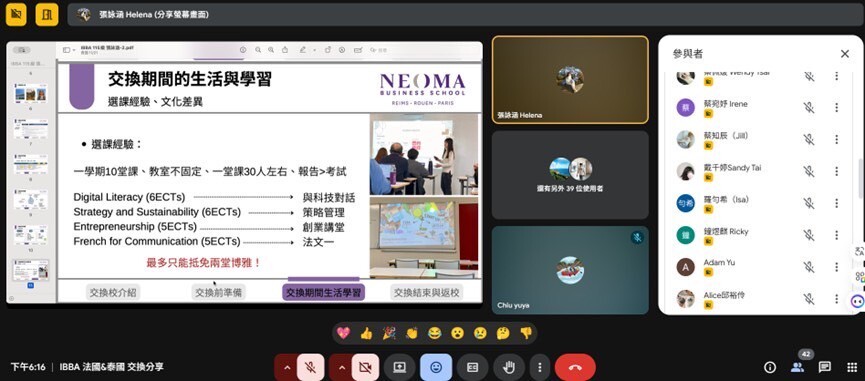
Senior students shared their experiences and solutions to academic challenges abroad, offering valuable tips for juniors.
Educational Value: Turning the World into a Classroom
Every IBBA student is required to complete a one-year exchange abroad, a defining feature that equips them with global perspectives, intercultural communication, and leadership skills. This sharing session was not just a set of practical tips but also a message of encouragement—reminding juniors that while challenges await, the rewards of stepping outside one’s comfort zone are immeasurable.

